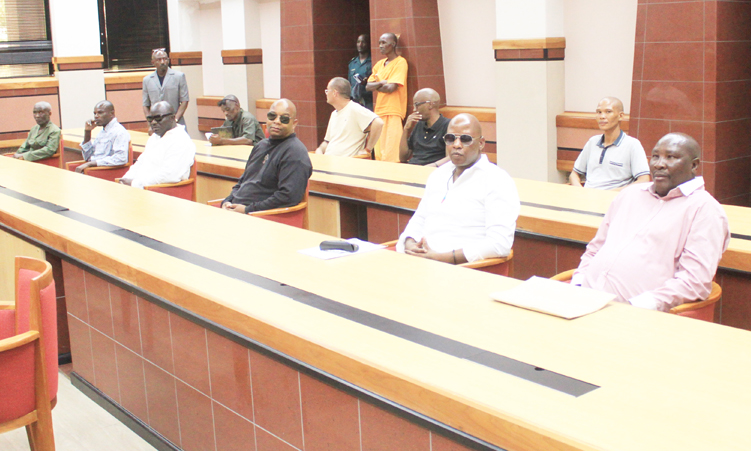A prisoner serving a jail term of 49 years after being convicted of murdering a German tourist and robbing and kidnapping the tourist’s travel companions has failed with an appeal against his sentence.
The Supreme Court dismissed Manfred Gariseb’s appeal against his sentence in a judgement delivered last Thursday.
In the same judgement, the court set aside the sentences of 13 other prisoners who were serving long jail terms and replaced their sentences with amended terms of imprisonment.
Gariseb’s appeal was the only one of the 14 appeals considered by the court that was dismissed.
Acting judge of appeal Theo Frank, who wrote the court’s judgement, said the crimes Gariseb was convicted of were so serious and gruesome that a sentence longer than the benchmark set by the Supreme Court in an appeal judgement in February 2018 was justified.
Gariseb and a co-accused were convicted of murdering a 61-year-old German tourist in the Spitzkoppe area north-west of Usakos in April 1999, and of robbing and kidnapping the tourist’s wife and two travel companions during the same incident.
Gariseb, then 31 years old, and his co-accused were sentenced to an effective prison term of 49 years each at the end of their trial in the Windhoek High Court in September 2000.
Frank recounted that the judge who sentenced Gariseb remarked that his victims experienced “sheer terror and hopelessness” while they were held captive at gunpoint by him, after they had seen him murder one of the members of their group by shooting him in the head.
Taking into account that Gariseb would be eligible to be considered for release on parole or probation after serving two-thirds of his sentences for murder and robbery, and half of his sentences for kidnapping, pointing of a firearm and possession of a firearm without a licence, he would have to serve a period of 27 and a half years of his sentence before the prison authorities can consider releasing him on parole or probation, Frank said.
In the circumstances of his case, that is an appropriate sentence, Frank added.
The appeal court considered the 14 appeals in light of a Supreme Court judgement in which the court found in February 2018 that a sentence of more than 37 and a half years’ imprisonment would, in practical terms, be a longer sentence than a term of life imprisonment, which is the longest sentence that can be imposed in Namibia.
In terms of the Correctional Service Act of 2012, someone sentenced to life imprisonment becomes eligible to be considered for release on parole or probation after serving a period of at least 25 years in prison.
The effect of the Supreme Court’s 2018 judgement on the constitutionality of extra-long prison terms is that a direct jail term of longer than 37 and a half years for any one offence is to be avoided, and when a sentence longer than that is imposed, the reason for it should be very clear and should justify why a sentence of life imprisonment was not imposed, Frank said.
Among the sentences set aside and replaced with changed terms of imprisonment in the judgement delivered last week is an effective jail term of 57 years to which a man convicted on charges of rape and armed robbery, Charles Namiseb, was sentenced in the Windhoek High Court in May 2019.
Namiseb’s 57-year prison term was replaced with an effective jail term of 37 and a half years.
In another appeal, an effective prison term of 61 years imposed in November 2005 on Ian Jones, who robbed, kidnapped and murdered a Windhoek resident in February 2002, was replaced with an effective sentence of 37 and a half years’ imprisonment.
The Supreme Court also set aside a 50-year jail term to which Gabriel Jona Petrus, who murdered his former girlfriend in her room in Windhoek in June 2012, was sentenced in the Windhoek High Court in June 2014.
Petrus strangled his former girlfriend, who was a 21-year-old student, and also held her roommate captive.
The appeal court set aside his sentence and replaced it with an effective jail term of 37 and a half years.
Acting appeal judges Hosea Angula and Rita Makarau agreed with Frank’s judgement on the prisoners’ appeals.
Stay informed with The Namibian – your source for credible journalism. Get in-depth reporting and opinions for
only N$85 a month. Invest in journalism, invest in democracy –
Subscribe Now!






